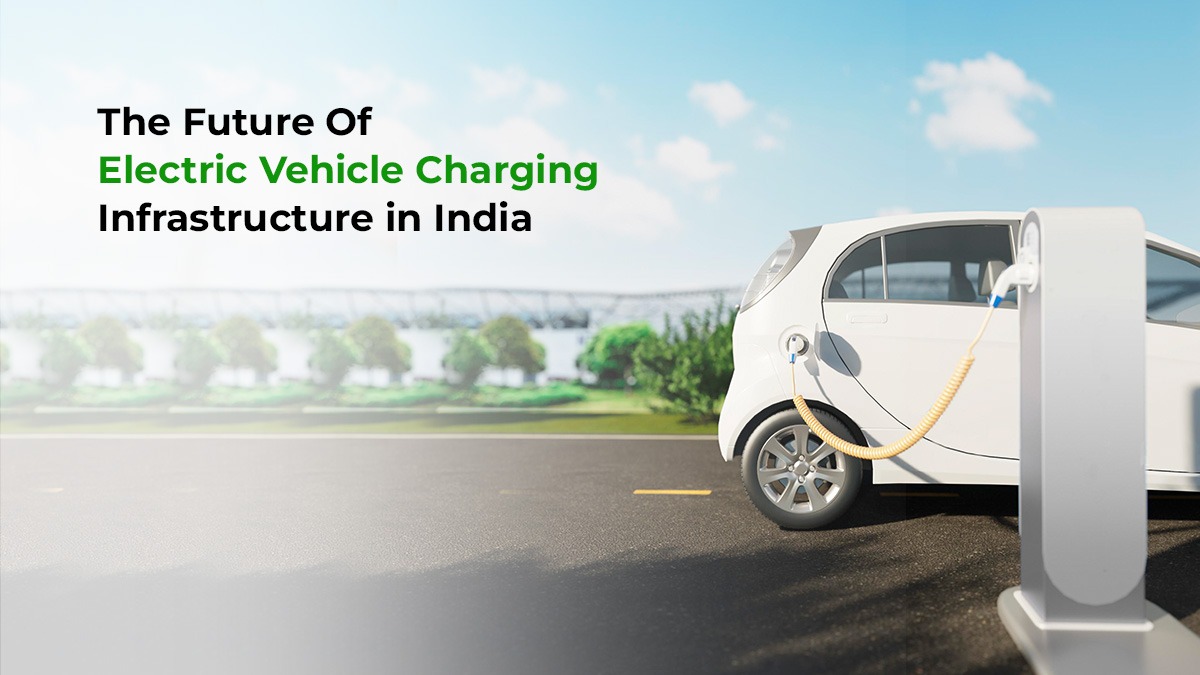Electric Vehicle (EV) Charging Infrastructure
The electric automobile industry in India is getting huge with each passing year. Speculations exist that in the coming decades, India will be witnessing a massive hit in the sector of electric vehicles. To promote the electric automobile industry in India, precise charging infrastructure is a must. With the development of EV charging support, a sustainable electric automobile infrastructure can be established in a few years.
Various factors, including the size of the battery and its capacity, also contribute to deciding the life of the EV. Thus, to promote the effective use of EVs in India, the government and private sector are working to provide an enhanced EV charging infrastructure for the people of India.
Current State Of EV Charging Infrastructure in India
Many developing countries, including India, considered EVs an opportunity to promote sustainability. However, without the help of adequate charging infrastructure, proper management of EVs is not possible. When discussing India precisely with regards to the current status of EV charging structure, certain prevailing limitations reduce the efficiency of such charging infrastructures.
Some of the factors that can somehow challenge the proper management of these EV charging structures are,
1. Distance:
It is yet to be discovered what should be the ideal distance at which the EV charging stations must be established. The current scenario in India states that electric vehicles are not potent enough to travel long distances on a single charge.
2. Charging Time
It is one of the critical challenges for the users to estimate the total time required for charging the EV. Some studies reveal that the total time required for charging is nearly 30 to 35 minutes which is way too long for regular use.
3. Proper Utilisation
The current situation of charging stations requires a capital investment and other monthly expenses, including the power supply costs. The aggregate cost of these charging stations is nearly $12 million, which is quite a big amount.
4. Raw Material
The prime material required for the EV charging setup is Lithium-ion batteries that are mainly produced in countries like China, North America, Japan, South Korea, and Western Europe. For the setup of electric vehicle charging stations, the government has to pay a handsome amount as an exportation cost to meet the requirements of electric vehicles in India.
The Growth Of Electric Vehicle Adoption
Intending to promote electric vehicle efficiency in India, the government is offering various benefits for the industries (government and non-government) to serve the purpose. As a result, the market of electric mobility has witnessed a surge in the past few years. To get an overview of the current growth criteria of electric vehicle adoption in India, here is a detailed explanation of statistical data on EV sales and some of the implications for the demand for charging stations in India.
1. Statistics on the current and projected growth of EV sales
As per the statistical data, in the year 2021, the Indian EV market was at a value of USD 1.45 billion. The market of electric vehicles aims to expand from USD 3.21 billion to USD 113.99 billion by the end of 2029. However, the pandemic period imposed a decline in the demand for electric vehicles worldwide
Despite the COVID-19 outbreak in 2019, the electric vehicle industry in India witnessed a rise in demand by 11.34% in the year 2020. India stands in the fifth position globally regarding electric vehicle consumption and demand. However, according to the projected EV sales, India aims to jump into the third position by the end of 2030. Even the NITI Aayog aims to establish 70% EVs in the total population by the end of the year 2030.
2. Implications for demand on charging infrastructure
Two main implications under which the demand for charging infrastructure gets affected are,- Enough charging stations at the right place It is quite difficult to figure out which place could be an ideal destination for setting up an EV charging station so that it can be accessible to everyone easily.
- Proper resources to ensure trouble-free operations The management of these electric charging stations needs to conduct a proper check-up on the charging equipment to ensure its working condition and trouble-free operations for consumers.
Innovations In Charging Technology
Innovation in the field of electric vehicles has resulted in massive popularity. Even the charging techniques for these electric vehicles tend to witness various innovations in the past few years.
1. Current charging technologies
The current scenario of charging techniques in India depends upon, AC level 1: It is one of the slowest charging sources at 120 Volts with a capacity of going up to 5 miles in one full charge. AC level 2: It has a slightly high value of 240 Volts with a capacity of going up to 10-15 miles on one full charge. DC fast charging: DC fast charging is the fastest charging source of the current times. However, the cost of this particular charging source is higher than the normal ones.
2. Introduction of new charging technologies
The future of charging technologies aims to include power inputs from,
Solar Energy: With the aim of establishing a sustainable electric vehicle charging station, solar energy inputs could be a potential one to start with.
Wireless Charging: In the future, this technology will help in saving time and will be helpful in emergency situations as well.
The Role Of Indian Government And Private Industry In Building Charging Infrastructure
The future of transportation merely depends upon electric mobility. Hence, to promote the growth of the particular sector in India, the government, as well as private companies are trying hard to promote the effective usage of electric vehicles. The government of India has improvised certain guidelines for the infrastructure of these charging stations in January 2022.
- 1. Examples of government initiatives to promote EV adoption and charging infrastructure development
Starting with the effective manufacturing of electric vehicle charging stations in 9 megacities of India, the government completed the installation of over 650 EV charging stations in just four months.
Furthermore, the government recently improvised certain guidelines,
- Providing an affordable tariff to the operators of public EV charging stations.
- Revenue sharing model to promote land usage for the public EV charging stations.
- Oil marketing companies set up more than 20,000 thousand EV charging stations in India.
- 2. Role of private companies in building and operating charging stations Private companies like TATA power and Reliance industries have declared their future plans to establish public EV charging stations in different cities. They aim to provide new and sustainable technologies of EV charging sources to promote electric vehicle efficiency in the country. However, some companies like BluSmart Workworky in specific cities are to provide EV charging services for the public.
The Future Of EV Charging Infrastructure in India
In India, people are now becoming vigilant toward the sustainable usage of natural fossils. One of the major steps to limit the usage of fuel in India was the introduction of electric vehicles. With the smart usage of these electric vehicles, one could easily save fuel for a longer period. The government realized the importance of establishing a well-organized charging infrastructure for EVs to ensure proper management.
In recent years, with the help of various government policies and the support of private companies, thousands of EV charging stations have been introduced to the cities. The growth rate and demand for the EV state that by the end of 2030, India will be one of the top users of electric vehicles worldwide. However, there are constant limitations in providing energy inputs for these electric vehicle charging stations.
To introduce solar energy inputs and other natural sources of energy inputs, these EV charging stations can be a potential alternative to fuel-emitting vehicles in the country.
Conclusion
To lead electric mobility in India, a suitable EV charging infrastructure is a must. Prevailing sources of charging EVs will witness new and innovative additions that will eventually add more sustainability to the fuel-saving cause. Not only the government but private companies are also eager to invest in the infrastructure of these EV charging stations. Various megacities already have these stations to carry the unbothered legacy of Electric Vehicles in India. The aim further focuses on providing the services of electric vehicles and the charging support system to every corner of the country.
Post-pandemic, the demand for these EVs has gradually increased, and by the end of this decade, electric vehicles will be one of the substantial additions to the growth rate of the nation.












